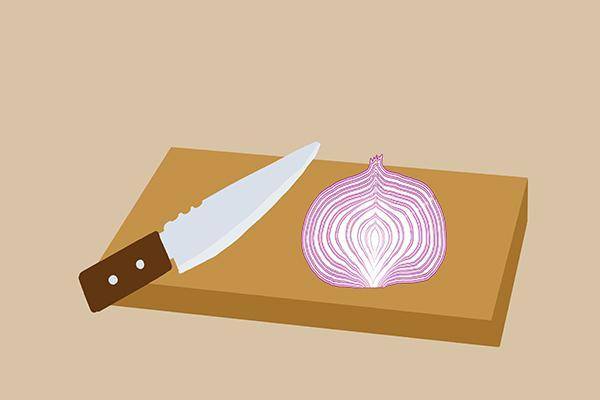With the improvement of people’s health awareness, more and more people are beginning to pay attention to health preservation. Many common vegetables are being discovered to have different health benefits by some researchers and scholars.
Onions are a typical example. Under the packaging of various experts, onions have been endowed with effects such as lowering blood lipids and even anti-cancer properties, leading to an increase in consumption among health enthusiasts. Is it really as miraculous as claimed?
The Spanish Food Research Institute once conducted extraction experiments and successfully extracted two sulfur compounds from onions, namely allyl disulfide and sulfur-containing amino acids.
According to research, these two extracted components can help dilate blood vessels, dissolve fat particles, and indeed have a certain promoting effect on regulating blood lipids. However, under normal human intake conditions, the amount ingested when eating onions is too small to directly lower blood lipids.
Therefore, eating onions regularly for preventing high blood lipids and regulating blood lipids is effective and beneficial. However, solely relying on onions to reduce lipids is still too demanding. Actively following medical advice, improving diet, and lifestyle are crucial.
Similarly to lowering blood lipids, eating onions does not prevent cancer, but it can prevent stomach cancer.
The natural sulfur compounds in onions can degrade nitrite in the stomach, reduce the conversion of nitrosamines in the stomach, thus lowering the risk of stomach cancer. Studies have shown that people who regularly eat onions have a lower incidence of stomach cancer by about 20% compared to those who do not eat onions.
In conclusion, onions do have a preventive and regulatory effect on both blood lipids and cancer, but it is not as exaggerated as many experts claim, and it does not directly lower lipids or fight cancer. Treating illnesses still requires professional medical methods. Do not attempt to self-treat as it may hinder recovery.
Apart from preventing cancer and high blood lipids, the benefits of onions are far beyond these. Consuming onions properly can further unleash their nutritional value.
Making onion soup – expelling cold, sterilizing, and treating colds.
The sulfur compounds and onionin in onions naturally have antibacterial and sterilizing effects, and onions themselves have a warming nature. When suffering from a cold, drinking a bowl of onion soup warms from the stomach to the heart and can also help alleviate cold symptoms.
Stir-frying animal offal with onions – reducing cholesterol, increasing protein absorption efficiency.
For example, animal offal such as pig blood, pig liver, and chicken hearts, although rich in protein and delicious, are often avoided due to their high fat and cholesterol content. On the other hand, prostaglandins and onionin in onions can degrade cholesterol, break down proteins into small molecule amino acids, allowing animal offal to be consumed with less cholesterol and higher protein absorption efficiency.
In summary, onions have many benefits, but they should not be exaggerated. Recognizing the nutritional value of each ingredient is key to promoting health and laying a solid foundation for the body, thereby reducing the risk of diseases.


